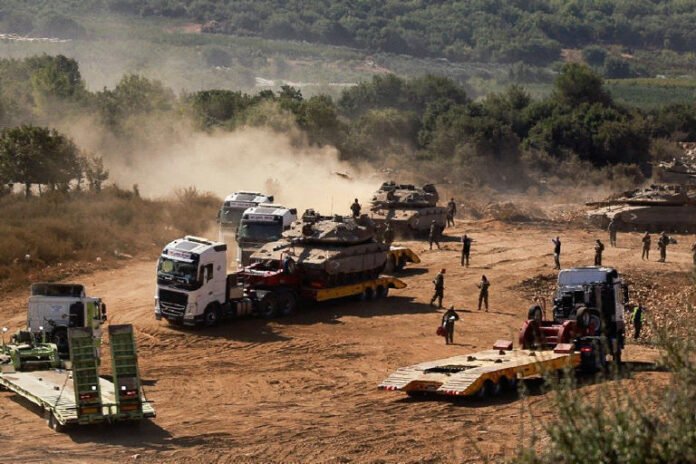As Israel marks Yom Kippur, the holiest day in the Jewish calendar, the nation finds itself grappling with escalating tensions following recent military strikes in Lebanon. Yom Kippur, a day dedicated to reflection, repentance, and atonement, takes on an added layer of complexity this year as Israel confronts threats on its northern border and ongoing regional instability.
Yom Kippur: A Day of Reflection
Yom Kippur, known as the Day of Atonement, is observed with fasting, prayer, and introspection. It is a time when many Israelis turn inward, seeking forgiveness and spiritual renewal. The day begins with a Kol Nidre prayer, followed by an extended period of prayer and reflection that lasts until sunset on the following day. The observance brings the nation together, fostering a sense of unity amid its diverse population.
This year, however, the somberness of Yom Kippur is overshadowed by the recent strikes in Lebanon, which have raised alarm bells across the region. Israeli leaders have had to balance the sanctity of the day with the pressing need to address security concerns, highlighting the delicate intersection of faith and politics in a nation constantly under threat.
Recent Strikes in Lebanon
In the days leading up to Yom Kippur, Israel launched a series of strikes targeting Hezbollah positions in southern Lebanon. The Israeli Defense Forces (IDF) stated that the strikes were a response to increased rocket fire from the Hezbollah-controlled region into Israeli territory. This escalation follows months of heightened tensions along the border, with both sides exchanging threats and military posturing.
The Israeli military justified the strikes as necessary to protect its citizens and maintain deterrence against Hezbollah, a militant group backed by Iran. These actions come amid a broader backdrop of regional instability, as Iran’s influence in the area continues to grow. The conflict with Hezbollah is particularly sensitive for Israel, as it recalls the 2006 Lebanon War, which resulted in significant loss of life and destruction on both sides.
Hezbollah, for its part, has vowed to respond to Israeli aggression, warning that it will not tolerate attacks on its positions. The prospect of retaliation during a time of national reflection like Yom Kippur has caused concern among Israelis, who remember the historical significance of the 1973 Yom Kippur War, when Egypt and Syria launched a surprise attack on Israel during the holy day.
A Nation on Edge
The juxtaposition of Yom Kippur’s solemn observance with the backdrop of military conflict has left many Israelis feeling uneasy. On one hand, the day is a time for personal and collective reflection, but on the other hand, the looming threat of violence serves as a stark reminder of the ongoing conflicts that plague the nation.
Public sentiment is divided, with some supporting the government’s decision to strike back against perceived threats, while others argue that such military actions detract from the spirit of Yom Kippur. The challenges of maintaining security while fostering a culture of peace are ever-present, particularly in a region marked by longstanding animosities.
As Israeli citizens gather in synagogues and community centers to observe the day, discussions about the military strikes and their implications are likely to emerge. Many will reflect on the cycle of violence that has plagued the region for decades, pondering whether true peace is achievable.
International Reactions
The recent strikes have also drawn attention from the international community, with calls for restraint from various global leaders. The United Nations has expressed concern over the escalating violence and its potential impact on regional stability. Diplomats have urged both Israel and Hezbollah to engage in dialogue rather than resort to military action, emphasizing the need for a peaceful resolution to the conflict.
As Yom Kippur unfolds, Israel is under scrutiny not only from its neighbors but also from allies and international organizations. The balance between national security and the pursuit of peace is a delicate one, and how Israel navigates this challenging terrain will have ramifications beyond its borders.
As Israel observes Yom Kippur amid the firestorm of military strikes in Lebanon, the nation faces a profound moment of introspection. The day, traditionally reserved for atonement and reflection, is clouded by the realities of conflict and insecurity. The juxtaposition of spiritual observance and military aggression highlights the complexities of life in Israel, where the quest for peace is continually overshadowed by the specter of violence.
In this context, the prayers and reflections of Yom Kippur take on new significance, as Israelis seek not only forgiveness but also a path toward a more peaceful and secure future. As tensions linger and the threat of escalation remains, the hope for reconciliation and understanding becomes ever more critical in a region yearning for peace.

